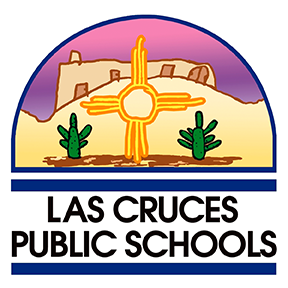As Ralph Ramos completes his first few months as Superintendent of Las Cruces Public Schools, urgency is in the air. On the heels of a pandemic that tested the will of each of us, we are presented with a once in a generation opportunity to rebuild our education ecosystem the way that it should be, rather than trying to simply put the pieces back together. Superintendent Ramos has identified several key strategies that will be the starting point for this transformation and an influx of federal funds paired with substantial investments by the State of New Mexico over the last few years sets the stage for success.
One key evidence-rich strategy is experiential learning. Human beings learn by doing, through trial and error. Public education for a century focused on knowledge transfer because we didn’t have direct access to every fact and figure in our pockets as we do today. The way we fund schools still mostly aligns with this outdated model. You don’t often see students out fundraising for spelling tests or history lectures but when it comes to participating in band, traveling to robotics competitions, or showing livestock at the state fair, we rely on popcorn sales and car washes to fund these activities.
As a former high school coach, I know how many hours our educators dedicate to these types of endeavors above and beyond the school day without proper compensation. We need to reframe how we think of school and what the school day looks like by expanding access to hands-on learning as part of the curriculum rather than extra-curricular activities for only a select few students who are able to raise enough money to participate. Mathematical thinking comes to life at the supercomputing challenge, students see themselves as college bound as part of the ENLACE program, communication skills are built when students are on location filming a story about the history of Mesquite Street, and careers are chosen when high school students work side by side with teachers as part of the Educators Rising program. These highly engaging, hands-on, experiential learning opportunities should be the center of an engaging curriculum and LCPS plans to lean in on ensuring our students have universal access and that the state funds these experiences equitably.
Another key level in experiential learning is Career and Technical Education programs. Oftentimes CTE programs are seen as an alternative to a college bound pathway. The New Mexico constitution obligates public schools to provide an adequate and sufficient education to all school-aged children. Every student that graduates should have the choice to pursue either college or career, not settle for a career because they are not college ready. Career and technical education programs are not an alternative pathway, they are engaging opportunities for students to get their hands on their learning. After all, shouldn’t a student interested in becoming an electrical engineer have an opportunity to wire a house? Applying knowledge and building skills is good for all students, regardless of their choice upon graduation.
Let’s build an education system that provides experiential learning opportunities for all students. Let’s build an education system that values educators by partnering with our community to reimagine what the school day looks like and gives our educators the time that all other professionals have for planning, research, collaboration, and innovation. Let’s fund an educational system that provides universal access to engaging, relevant, academically challenging experiences. The need for student engagement has never been more crucial as we emerge from the pandemic – let’s go big. The time is now.
-Dr. Tim Hand, Chief of Staff for Las Cruces Public Schools

